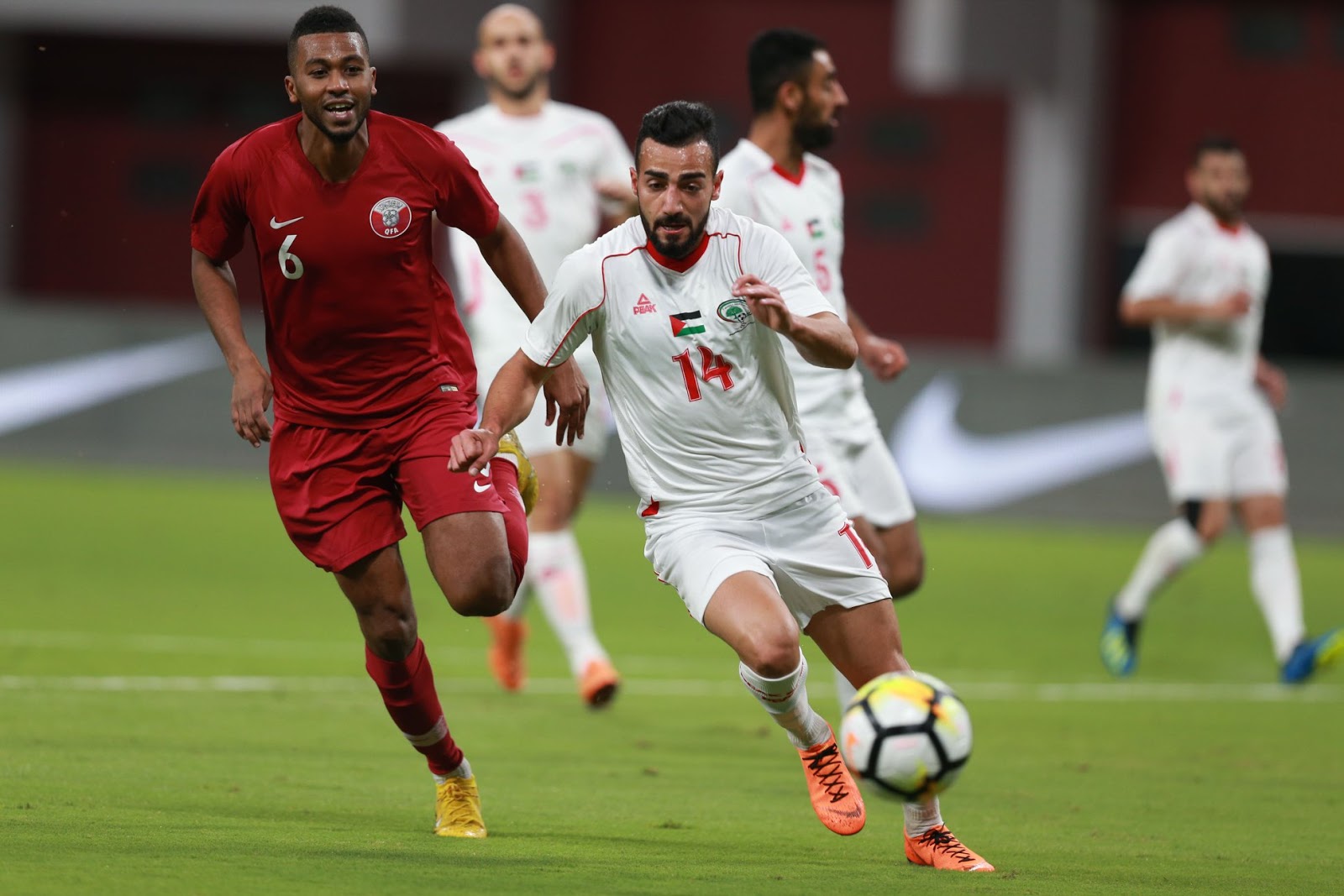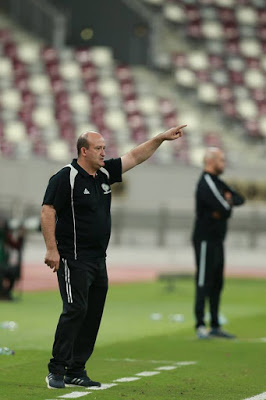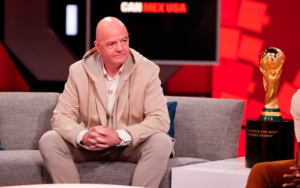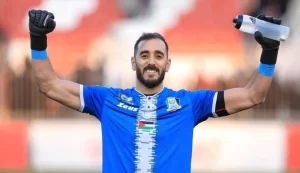
For the second consecutive time, Palestine will take part at the AFC Asian Cup but the mood amongst its most hardcore supporters has been negative, defeatist, and incredibly fatalistic.
Leave the past in the past
Instead of failure, Jamal Mahmoud delivered qualification to the 2015 AFC Asian Cup, a miracle in every sense of the word.
The mistake was compounded by the hiring of Ahmed El-Hassan an administrator with sparse coaching experience.
That said, even if Palestine had retained Jamal Mahmoud services, Palestine’s fate was sealed before a ball was kicked. The side might not have lost by four goal margins in this alternate reality but they most definitely would have still lost to all three games because the opposition were better in every aspect.
Savor the moment
Give Ould Ali a chance

Palestine’s coaching situation is less than ideal and most observers would agree that terminating Barakat was a mistake. However, no amount of pressure will bring him back as national team manager. In all fairness, why would Barakat even want to come back after being discarded so unceremoniously?
Moreover, the man himself accepted a position upstairs- tacitly accepting his removal from the post.
The damage cannot be undone and fans have to move on. Noureddine Ould Ali is not a sexy appointment but he is a manager that earned his stripes, first as part of Moussa Bezzaz’s staff, then as an assistant to Abdel Nasser Barakat. The Algerian knows the players really well and that will be crucial with so little time ahead of the Asian Cup.
It makes no sense to attack Ould Ali when he also played a large role in Palestine’s success as a part of Barakat’s staff.
The Algerian has also shown he can put a team together that can compete. That 0-0 draw vs Iraq in Iraq is a result Palestine rarely achieves. It was the first clean sheet Palestine recorded against the Lions of Mesopotamia and only the third time in 13 tries they avoided defeat.
Zlatko Dalic lead Croatia to a World Cup final with less than eight months’ lead time and Akira Nishino led Japan past the group stage with just 84 days in the role.
Yes, a steady hand that has been at the helm for at least three years is ideal- but it is not a guarantee of success. With Ould Ali at the helm the fundamental structure of the team that has done so well over the past three years will remain.
Ould Ali’s task now is to determine Palestine’s best 23 players. It is not about results. We have learned a lot about the players over the summer. Let’s recap some of the things that have happened:
- Islam Batran was given his first significant run of games and has done really well.
- Oday Dabbagh is not the finished product and we saw both the good and the bad in the games he featured in.
- We now know that Mohammed Basim is more capable of playing at international level than Mohammed Yameen or Odai Kharoub.
- Pablo Tamburrini came back and showed his effectiveness as a deep lying playmaker
- Tamer Salah captained the side against Kuwait and Qatar and did not impress- falling behind Mohammed Saleh in the pecking order and perhaps playing himself out of consideration.
- Jaka Ihbeisheh was recalled and showed that his value through his versatility as a right back. His understanding of the game helped cover our defensive deficiencies.
- Toufic Ali was given a run of games and proved that he does not merit consideration as a #2, let alone a #1 goalkeeper.
Experimentation is necessary; it allows you test and discover players that are capable of matching the best the continent has to offer.

Palestine’s coaching situation is less than ideal and most observers would agree that terminating Barakat was a mistake. However, no amount of pressure will bring him back as national team manager. In all fairness, why would Barakat even want to come back after being discarded so unceremoniously?
Moreover, the man himself accepted a position upstairs- tacitly accepting his removal from the post.
It makes no sense to attack Ould Ali when he also played a large role in Palestine’s success as a part of Barakat’s staff.
- Islam Batran was given his first significant run of games and has done really well.
- Oday Dabbagh is not the finished product and we saw both the good and the bad in the games he featured in.
- We now know that Mohammed Basim is more capable of playing at international level than Mohammed Yameen or Odai Kharoub.
- Pablo Tamburrini came back and showed his effectiveness as a deep lying playmaker
- Tamer Salah captained the side against Kuwait and Qatar and did not impress- falling behind Mohammed Saleh in the pecking order and perhaps playing himself out of consideration.
- Jaka Ihbeisheh was recalled and showed that his value through his versatility as a right back. His understanding of the game helped cover our defensive deficiencies.
- Toufic Ali was given a run of games and proved that he does not merit consideration as a #2, let alone a #1 goalkeeper.
The FA is the problem
“Our FA is run by crooks who are only interested in making money.”
Criticism of the FA has died down over the last month with some of its most ardent critics choosing to show support in light of Jibril Rajoub’s suspension from FIFA. It speaks volumes that not one person mentioned the obvious: Rajoub brought this on himself by saying yet another stupid thing in public. (it’s not the first time)
The players and coaching staff are doing a good job in dire circumstances. The FA has done nothing (aside from assuring continuous league play) to support football and footballers in this country. Instead of directing rage at the people responsible, sections of fans and the media have been directing it at a manager who has been at the helm for four months.
These players are GOOD!


Four years ago, Palestine had no reliable goal scorers. It was so bad, Jamal Mahmoud had to rejig his system and play Ashraf Nu’man as a striker. In 2019, Palestine will be able to count on Saleh Chihadeh (20 goals in Switzerland), Mahmoud Wadi (10 goals in 17 games in Jordan), Yashir Pinto (Five goals in eight games for the national team), and Matías Jadue (scorer of 7 goals in his first five V. League games).
Things are so different now that is it borderline ridiculous to bring up 2015.
It’s a tournament- ANYTHING can happen
It’s not like the opposition are lighting it up at the moment, either. Syria have not won a game under Bernd Stange, Jordan have sacked Jamal Abu Abed, and even Australia have yet to play a game under Graham Arnold.
If you claim to be a fan just lend your support and enjoy watch Palestine play in Asia’s continental showpiece.




